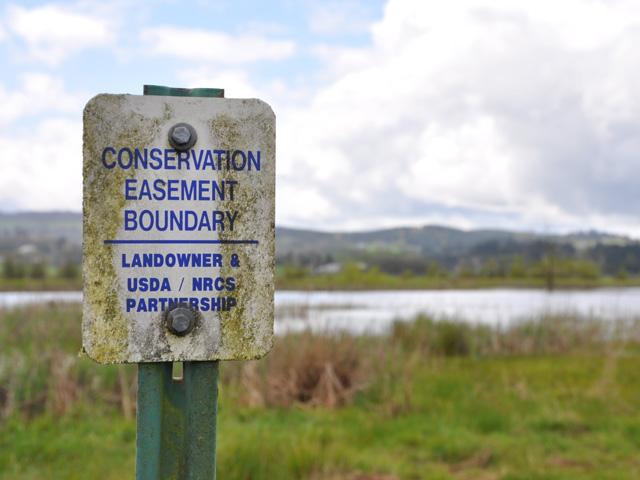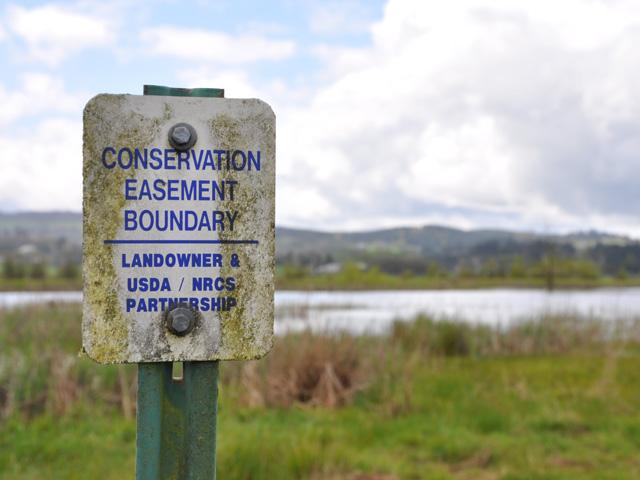An Urban's Rural View
In Defense of Conservation Easements
As if the country doesn't suffer sufficiently from divisiveness already, some politicians are trying to make conservation easements look like a leftist plot. Nebraska Governor Pete Ricketts says the federal government and "radical environmental groups" are trying to "entice" farmers and ranchers to "give up their property rights." (https://governor.nebraska.gov/…)
Conservation easements, like many things, are matters about which reasonable people can disagree. Demonizing them is uncalled for.
The demonization is especially unfortunate because conservation easements, being voluntary and non-adversarial, are the kind of environmental-protection measures that should appeal to politicians who like property rights and free markets. Far from "radical," the conservation groups that have long promoted easements are among the most pragmatic. They include the Nature Conservancy, Ducks Unlimited and an organization dedicated to preserving agricultural land, American Farmland Trust.
By agreeing to a conservation easement, a landowner gives away or sells specified rights in her property -- for example, the right to build a housing subdivision or a Walmart on it -- while retaining ownership. The nonprofit organization or government agency, called the easement holder, agrees to hold those rights but not use them.
The easement runs with the land, meaning all subsequent buyers of the property must abide by the easement's terms -- in perpetuity. That's a good thing to some people, a bad thing to others.
One landowner might agree to an easement because he wants to make sure his land will always be agricultural land. Forever. Another might think it's wrong to limit the rights of future property owners, who could face circumstances different from today's. Easements being voluntary, both landowners are free to do as they choose.
P[L1] D[0x0] M[300x250] OOP[F] ADUNIT[] T[]
In addition to protecting the land against unwanted uses, the easement provides a financial benefit -- a tax deduction or deductions reflecting the decline in the property's value, or occasionally a cash payment. "It's an opportunity for farmers to keep farming and get a little money in their pockets," John Piotti, American Farmland Trust's president and chief executive officer, said in an interview.
Compared to alternative ways of extracting equity from land while maintaining ownership, like borrowing, easements are painless, Piotti said. "If farmers plan to continue farming, they don't need to have the right to put a Walmart on their property. They can sell that right."
The terms of some conservation easements are specific -- don't drain the wetlands or chop down the woods, for example. Others are sweeping -- no construction of buildings of any kind.
The agricultural easements AFT promotes and holds are more flexible. Their principal purpose, Piotti said, is "to make sure that land is available for agriculture long into the future."
If the trees need to be chopped or housing built for farm workers, the ag easement will allow it. Most ag easements don't even require the land to be farmed, only that it be "available" for farming.
Is society well served by never-ending restrictions on land use? According to Piotti, easements can be amended as long as there's a tradeoff that ensures no net loss of conservation value. Moreover, he said, if society has a genuine need for the land, there's eminent domain; easements don't protect against that. And as easements are creatures of federal and state law, laws can be changed if circumstances change.
Some fear the effect of easements on the tax base. That fear is founded on a misconception; the reduction in property value seldom translates into less tax revenue. That's because most ag land is taxed at its agricultural value, which easements preserve.
Yes, easements block development and developed lands generate more tax revenue. But they also require more services. Numerous studies by AFT and others show that the lower outlays for services on open land under easements more than compensate for lost revenue. "Farm fields don't require police protection, and cows don't go to school," Piotti explained.
Holding down property prices makes it easier for younger farmers to acquire land. Without an easement, young farmers may have to compete with real-estate developers for land, a competition the developers will usually win.
"In many places, the only way we get the next generation of farmers on the land is by putting an easement on it," Piotti said. "Easements are a critical part of what is needed to advance agriculture in this country."
Easements come in different sizes and flavors depending on which land trust or conservation group is offering them. If one easement doesn't suit, another might. Or not; for many landowners, none will. Nobody is making them do it. It's their choice.
That's the point, in Piotti's view. Politicians who see landowners getting their pockets picked have it backward. The truth is, easements expand landowners' options.
"An easement gives people the right to do what they want with their property," Piotti said. "People who are anti-easements are anti-property rights."
Urban Lehner can be reached at urbanize@gmail.com
(c) Copyright 2022 DTN, LLC. All rights reserved.






Comments
To comment, please Log In or Join our Community .